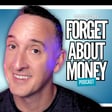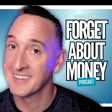
🇲🇽 Starting a Business in Mexico: Jesse's Journey from America to Ensenada 🏝️
Watch this episode and subscribe on YouTube
Jesse, a former financial consultant traded his American lifestyle for a more fulfilling life in Ensenada, Mexico.
Jesse shares his remarkable journey of leaving his U.S. career to start a massage business abroad and find financial independence in a low-cost living area.
🎯 Episode Highlights:
0:00 - Starting a New Chapter: Jesse's inspiring transition from the U.S. to Mexico, leaving behind a stable consulting career.
0:31 - Making the Retirement Decision: How he balanced retirement options after receiving a windfall.
2:27 - Selecting the Perfect Location: Why Ensenada became the ideal location for his new business.
4:18 - Transitioning to His Own Business: From couch surfing to building a successful massage studio.
6:41 - Cultural Influences in Entrepreneurship: Navigating the cultural differences in business.
10:21 - Impact of Americans in Mexico: Understanding gentrification and respecting local culture.
16:05 - Tips for Entrepreneurs Abroad: Jesse's valuable advice for starting a business outside the U.S.
19:40 - Benefits of Low-Cost Living: Exploring the financial advantages of living in Ensenada versus San Diego.
23:28 - Personal Financial Independence Journey: Jesse's path to financial independence before and after receiving a windfall.
34:17 - Financial Independence Path: How strategic financial planning led to his success.
38:41 - Potential Changes with Windfall: What he would have done differently if he had known about the windfall earlier.
42:21 - Seeking Happiness Beyond Wealth: Finding joy through community, purpose, and meaningful connections.
📝 Key Takeaways:
The challenges and rewards of starting a business in Mexico.
The financial and personal benefits of living in a low-cost area.
How a windfall can alter your retirement path, and the importance of staying true to one's values.
Intentional savings accounts and their role in fostering happiness and fulfillment.
Jesse's Links:
📧 Email: [jesse@ensenada-massage.com]
🌐 Business Website: [ensenada-massage.com/blog]
Connect with Us:
Follow the Forget About Money podcast for more stories like Jesse's.
Share your thoughts on this episode in the comments below, and don't forget to like and subscribe!
#ForgetAboutMoney #StartingABusinessInMexico #FinancialIndependenceJourney #LowCostLiving #WindfallRetirement #EntrepreneurshipAbroad #AmericanExpatsInMexico

